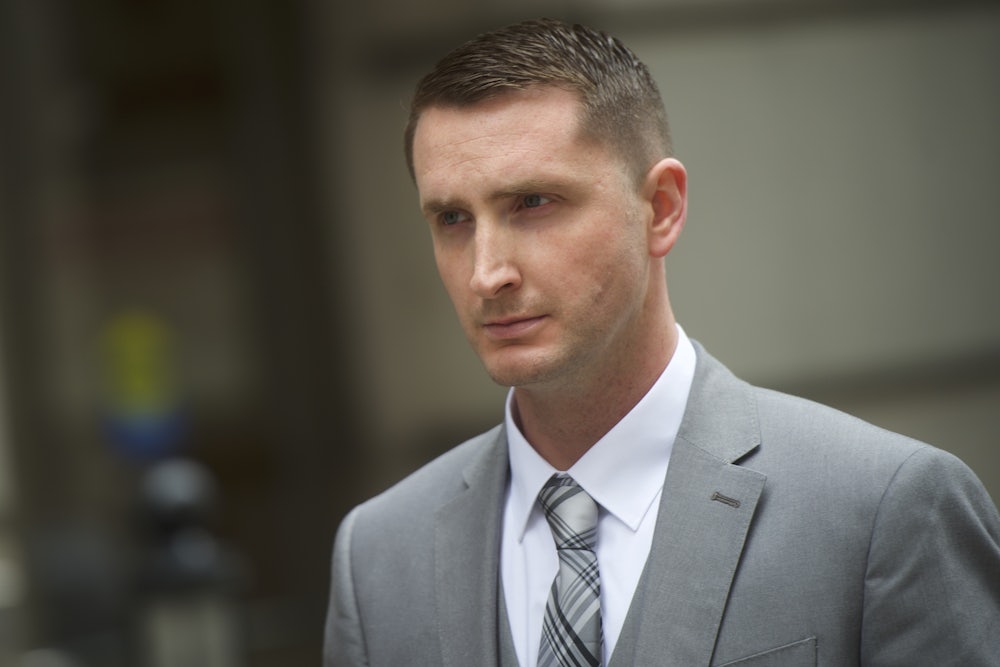On Monday, a local judge acquitted Officer Edward Nero of all charges relating to the death of Freddie Gray, whose spine was broken while he was in police custody last year. The second of six officers to be tried in Gray’s killing, Nero is also the second to walk free, following a hung jury in the prosecution of William Porter.
A new trial against Porter is slated to commence in June, and there is still a chance that convictions will be handed down for the remaining four officers. But so far, the Baltimore proceedings have reaffirmed the sheer, daunting scope of the challenges facing racial justice advocates.
In a city that experiences among the highest rates of police killings in the country, securing an indictment against Nero was an achievement in itself. But the difficulties didn’t stop there. As the Guardian reported, prosecutors resorted to a “novel legal theory” to bring misconduct and assault charges against Nero, one met with “skeptical questions” from the judge, who eventually hewed to “a stricter standard of the law.”
The judge’s interpretation is not necessarily wrong. In Baltimore, as in the rest of the country, the burden of proof required to convict a police officer of criminality remains exceedingly high. “This is our American system of justice,” Baltimore Mayor Stephanie Rawlings-Blake said of the ruling. “Police officers must be afforded the same justice system as every other citizen.” The problem is that they aren’t.
